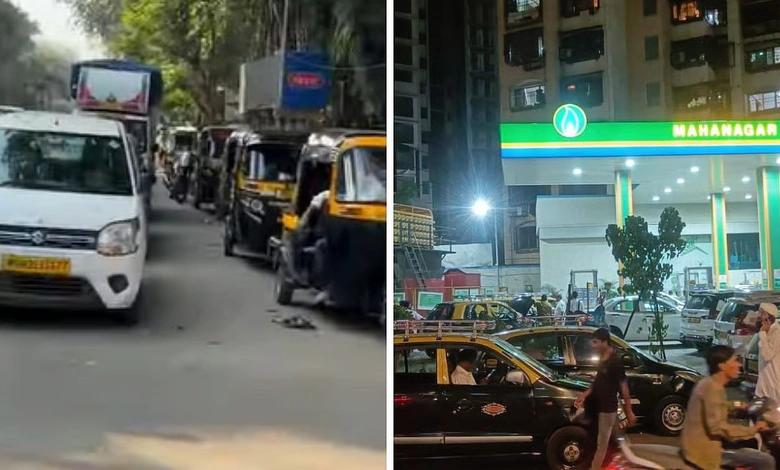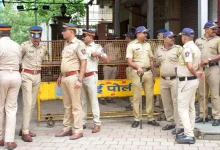Pipeline Rupture Triggers CNG Crunch, Sparking Endless Lines at Fuel Stations

Mumbai: The city’s bustling morning commute ground to a frustrating halt on Monday as a critical disruption in compressed natural gas (CNG) supply rendered numerous stations inoperable, stranding countless autos, taxis, and ride-hailing vehicles in serpentine queues.
Just 24 hours after the abrupt cutoff, drivers formed sprawling lines that stretched for kilometers outside fuel outlets, clogging nearby thoroughfares and amplifying the usual urban gridlock. Social media platforms brimmed with user-shared footage capturing the chaos: endless rows of public transport amid the predawn hours, with operators voicing exasperation over multi-hour waits just to top up their tanks.
The root of this widespread gas shortfall traces back to damage inflicted on a key pipeline by external contractors within the Rashtriya Chemicals and Fertilizers (RCF) facility, which compromised the primary line operated by GAIL and throttled deliveries to Mahanagar Gas Limited’s (MGL) Wadala City Gate Station. This bottleneck swiftly cascaded into operational halts or severe throttling at CNG dispensers, hitting hardest those serving the dense fleets of city-run transport that depend overwhelmingly on the fuel for routine operations.
The ripple effects extended far beyond the pumps, ensnaring early risers in a scramble for reliable rides to workplaces and schools. Reports poured in from neighborhoods including Byculla, Kurla, Sion, Chembur, Borivali, Andheri, Mulund, and Vashi, where auto and taxi availability plummeted, prompting sharp spikes in aggregator cab pricing amid the scarcity.
In a bid to mitigate broader fallout, Mahanagar Gas Limited officials emphasized that residential piped natural gas (PNG) distributions were being safeguarded, sparing homes from any interruption. They noted ongoing initiatives to incrementally revive CNG feeds to affected sites.
Further insights from GAIL’s Deepak Gupta, shared with ETNow, pinpointed the incident to unauthorized interference with the vital conduit. Gupta projected a 24-to-30-hour timeline for full repairs, projecting a provisional shortfall of 1.5 to 2 million metric standard cubic meters per day (mmscmd). As a stopgap, directives urged industrial and business users to pivot to backup power options pending normalization.
MGL reiterated commitments to expedite recovery once Wadala operations stabilize, extending regrets to residents and commuters for the upheaval endured.




